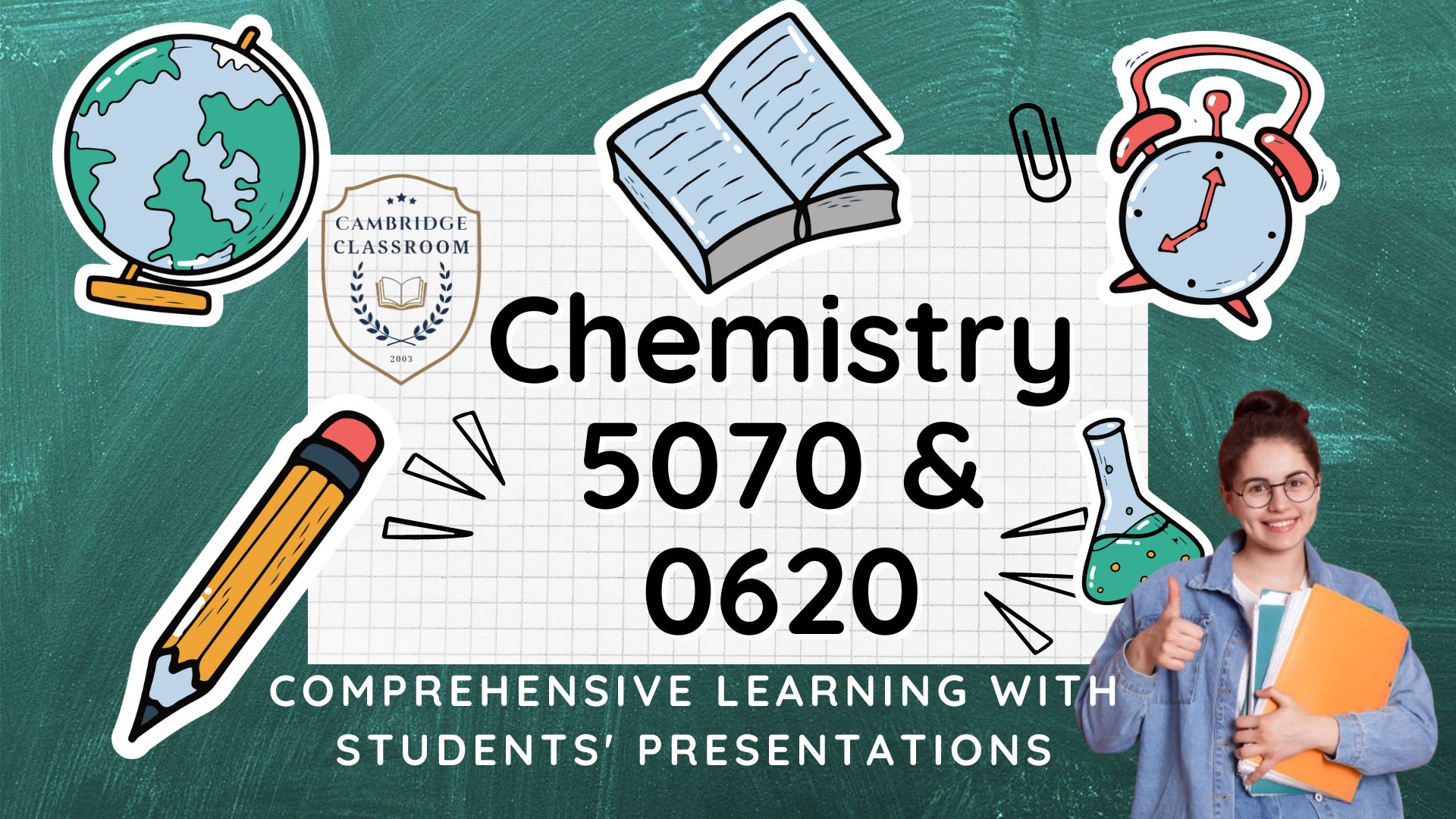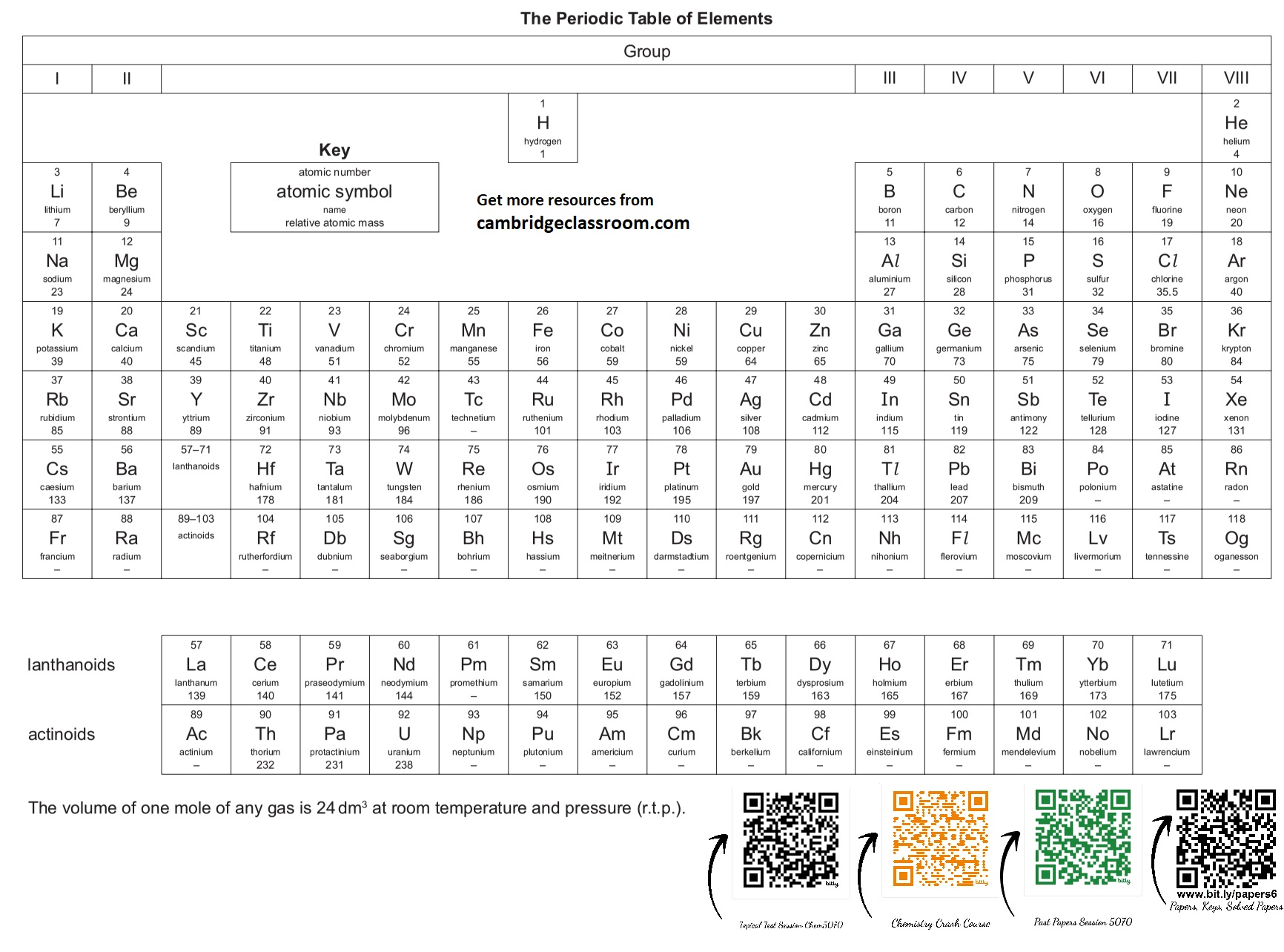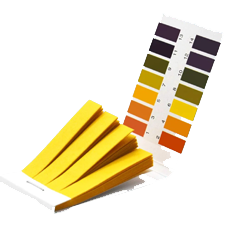O Level Chemistry (5070) – Complete Guide 2025 (Notes, Syllabus, Tips, Past Papers)
Mastering Cambridge O Level Chemistry (5070) is your key to unlocking opportunities in medicine, engineering, and beyond. This complete 2025 guide is your one-stop resource for the entire syllabus, free notes, examiner tips, and a direct path to the past papers that will secure your A*. Let's transform your chemistry revision from overwhelming to overachieving.
Understanding the O Level Chemistry 5070 Syllabus 2025
The first step to success is knowing exactly what you need to learn. The O Level Chemistry 5070 syllabus is designed to build your understanding from the ground up, focusing on both theoretical knowledge and practical skills.
Key Changes for 2025: The syllabus remains stable, but emphasis continues to shift towards application-based questions. Examiners are looking for students who can apply concepts to unfamiliar scenarios, not just recall facts.
We've simplified the entire syllabus into a logical, easy-to-follow structure. The main topics are:
- Stoichiometry: The language of chemistry.
- Atomic Structure & Bonding: The foundation of all reactions.
- States of Matter: Solids, liquids, gases, and solutions.
- Electrochemistry: Electrolysis and its applications.
- Chemical Energetics: Endothermic and exothermic reactions.
- Acids, Bases, and Salts: Properties, reactions, and preparation.
- The Periodic Table: Trends and patterns of elements.
- Metals: Extraction, properties, and uses.
- Organic Chemistry: An introduction to carbon compounds.
- Experimental Techniques: The practical skills you need to know.
For the most detailed breakdown, our Ultimate Guide to O Level Chemistry 5070 covers every learning objective.
Free Download: O Level Chemistry 5070 Syllabus Checklist 2025
Don't navigate the syllabus blind. Download our free, printable syllabus checklist PDF to track your progress and ensure you never miss a topic.
O Level Chemistry 5070 Notes: Your Topic-by-Topic Mastery Kit
Reading a textbook cover-to-cover is inefficient. Our expert-curated notes are condensed, visual, and focused exclusively on what you need to know for the exam.
1. Stoichiometry & The Mole Concept
This is the most important chapter for calculations. Master the mole concept, and you unlock a significant portion of the paper.
Pro Tip: The formula triangle (moles = mass / Mr) is your best friend. Practice rearranging it until it's automatic.
For in-depth practice, use our Moles Worksheet Solution pack.
2. Atomic Structure & Bonding
Understand the "why" behind chemical reactions. Focus on the differences between ionic, covalent, and metallic bonding.
3. Electrochemistry
Students often find electrolysis challenging. The key is to memorize the rules for predicting products at the anode and cathode for different electrolytes.
Our Electrochemistry Masterclass simplifies this complex topic with easy-to-follow rules and animations.
4. Acids, Bases, and Salts
You must know the tests for gases, the preparation of salts, and the properties of acids and bases. This is a major topic in Paper 4 (Alternative to Practical).
5. The Periodic Table
Don't just memorize it; understand it. Focus on trends in Group I, Group VII, and the transition metals. Unlock the Power of the Periodic Table with our free guide.
O Level Chemistry 5070 Past Papers: The #1 Revision Tool
Practicing with past papers is the single most effective way to improve your grade. It's not just about testing your knowledge; it's about understanding the examiner's mind.
How to Use Past Papers Effectively:
- Start Early: Don't save them for the last month. Begin doing topic-specific questions as you finish each chapter.
- Time Yourself: Mimic exam conditions to build speed and stamina.
- Mark Ruthlessly: Use the official marking scheme. Understand that examiners are often looking for specific keywords.
- Analyze Your Mistakes: Create an "error log" to track the types of mistakes you make repeatedly.
Access a vast library of organized resources through our Past Papers Session for O Level Chemistry 5070, which includes examiner reports and video solutions.
Top 10 Examiner Tips to Ace O Level Chemistry 5070 in 2025
These insights, gathered from years of examiner reports, will help you gain those crucial extra marks.
- Master Command Words: "State" requires a single fact; "Explain" needs a cause and effect. Underline these words in the exam.
- Show Your Working: Even if your final answer is wrong, you can get method marks for correct steps in calculations.
- Units are Non-Negotiable: Always include units (e.g., kJ/mol, °C) in your final answer. A missing unit costs a mark.
- Be Precise: Say "the mass increases" instead of "it gets bigger." Use correct chemical names, not colloquial terms.
- Draw Diagrams Clearly: For apparatus diagrams, use a pencil and ruler. Label everything fully.
- Manage Your Time: Allocate 1 minute per mark. Don't get stuck on a single question; move on and come back.
- Read the Question Twice: Circle key data in calculation questions. Ensure you are answering the question that was actually asked.
- Revise Practical Skills: Paper 4 is based on practical knowledge. Know your tests for ions, gases, and functional groups.
- Practice Graph Skills: Be able to plot points accurately, draw a line of best fit, and calculate gradients.
- Stay Calm and Structured: In extended response questions, plan your answer with bullet points to ensure it's logical and complete.
Free Resources & Downloads for 2025 Success
We believe top-tier resources should be accessible to every student. Here are our most popular free tools:
- O Level Chemistry 5070 Formula & Definition Sheet: A quick-reference guide for last-minute revision.
- 2025 Exam Timetable (All Zones): Download the Ultimate CAIE June 2025 Exams Timetable to plan your final revision.
- Common Ions & Valencies Chart: Memorize this to speed up formula writing.
- Examiner Report Summary: We've condensed the last 3 years of examiner comments into a single, actionable document.
Your Next Step: Join the Ultimate O Level Chemistry 5070 Crash Course
If you want to fast-track your preparation and secure that A*, consider our structured program. Our O Level Chemistry 5070 Crash Course provides the expert guidance, structured revision, and exam-focused practice you need.
What you'll get:
- Live interactive classes covering the entire syllabus.
- Downloadable premium notes and mind maps.
- A dedicated tutor to answer your questions.
- Mock exams with personalized feedback.
Student Success: "The crash course broke down complex topics like organic chemistry into simple, understandable parts. I moved from a C to an A in just 8 weeks!" - Aisha R., Dubai.
Frequently Asked Questions (FAQs)
What is the difference between O Level Chemistry 5070 and IGCSE Chemistry 0620?
The syllabuses are very similar, with over 90% content overlap. O Level 5070 is often considered to have a slightly more traditional and rigorous approach, while IGCSE 0620 may include more contemporary contexts. For most students, the preparation strategy is identical.
How many papers are there in O Level Chemistry 5070?
You will take two papers: Paper 2 (Multiple Choice, 1 hour, 40 marks) and Paper 4 (Theory, 1 hour 45 minutes, 80 marks). There is also a practical paper (Paper 5) or an alternative (Paper 6), but most private candidates take Paper 6, which is a written paper testing practical skills.
Where can I find the official O Level Chemistry 5070 syllabus?
The official syllabus is on the Cambridge International website. For a student-friendly, broken-down version, our Ultimate O Level Chem 5070 syllabus guide is the perfect place to start.
Is O Level Chemistry hard?
It is a challenging subject that requires both logical thinking (for calculations) and memory (for facts and definitions). However, with a clear plan, consistent practice, and the right resources like a focused crash course for Chemistry 5070, it is absolutely achievable to get a top grade.
Conclusion: Your A* in O Level Chemistry 5070 is Within Reach
You now have everything you need to create a winning strategy for your O Level Chemistry (5070) exam. This complete 2025 guide—with its syllabus breakdown, expert notes, and access to past papers—has given you the blueprint. The final step is to take action. Start with the syllabus checklist, master one topic at a time, and relentlessly practice with past papers. Your path to chemistry success begins now.





















